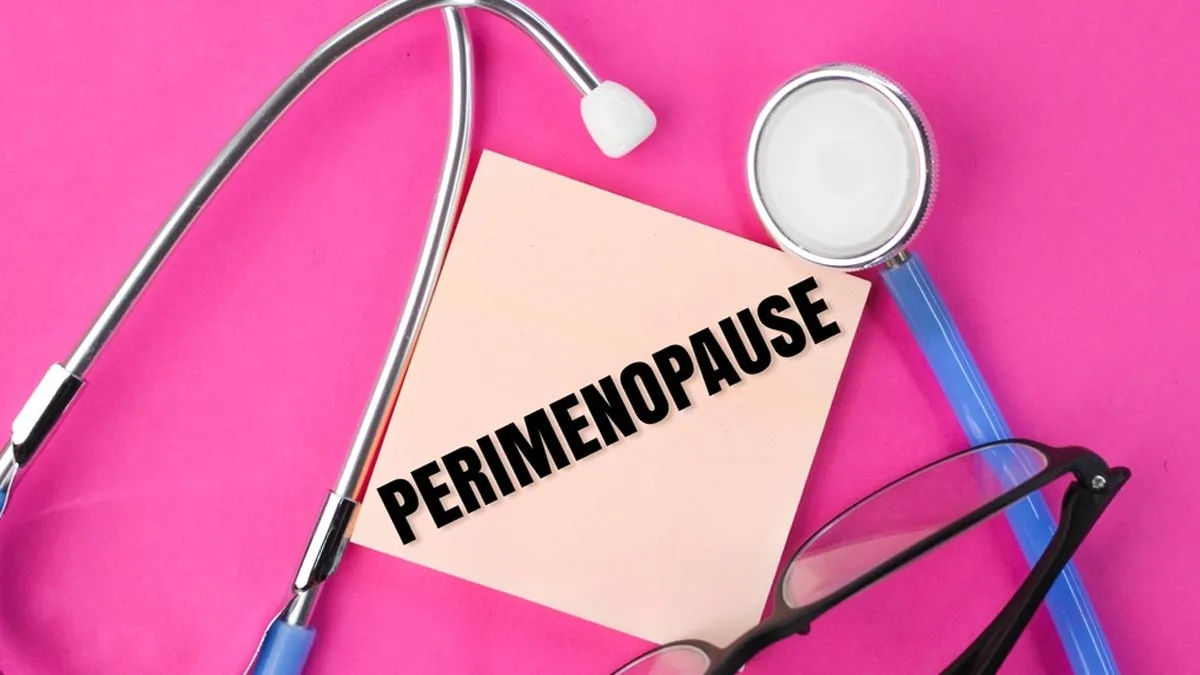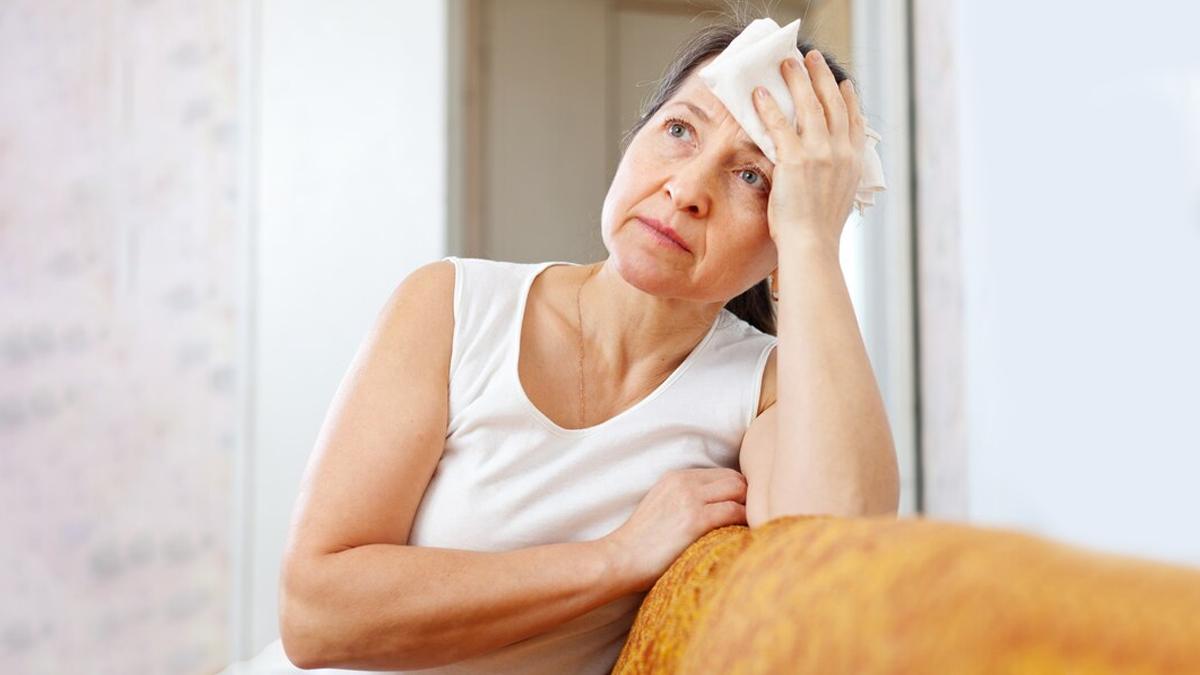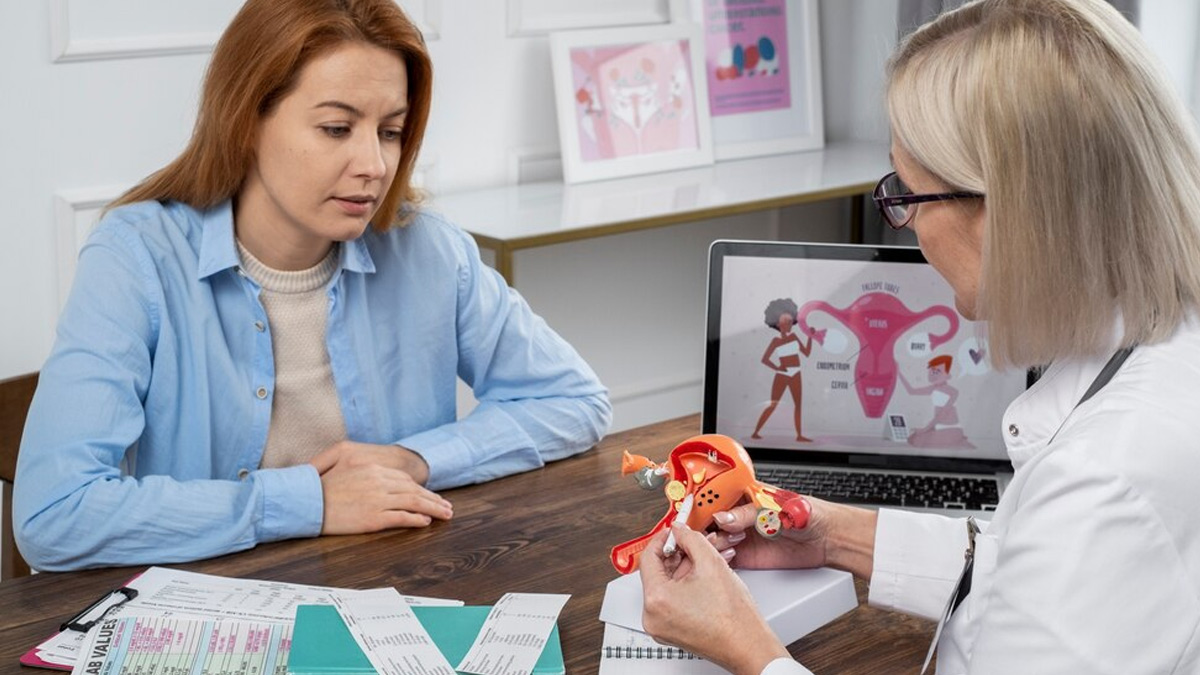
As you age, you may experience various changes in your body, such as the weakening of bones, sagging of skin, and reduced cognitive ability. In women, one of the noticeable changes is irregular periods. But what is the connection between ageing and menstrual health? We spoke to our expert Vidhi Chawla, Dietician and Founder, Fisico Diet and Aesthetic Clinic, Gurugram, who explained the impact of perimenopause on menstruation.
Table of Content:-

Most women experience irregular menstrual cycles as they enter their 40s or 50s. This change is primarily linked to the transition to perimenopause. It is a transitional phase, which usually begins in the late 40s but can start earlier for some women. "During this phase, the body undergoes significant hormonal shifts that can disrupt the regular menstrual cycle. As a result, menstrual cycles may become shorter, longer, heavier, lighter, or even skip altogether, " said Chawla.
The Massachusetts Women’s Health Study (MWHS) found that in women over 50, shorter menstrual cycles and brief bleeding or spotting episodes were more common during early perimenopause. In contrast, menstrual cycles lasting 90 days or more tended to occur later in the transition.
Signs Of Perimenopause
The symptoms of perimenopause may vary, however, these are some of the common symptoms as stated in Johns Hopkins Medicine:

- Hot flashes
- Headaches
- Mood changes
- Difficulty concentrating or with memory
- Vaginal dryness
- Sleep issues
- Frequent peeing
- Joint and muscle pain
- Changes in sexual desire
Also Read: Are You On Perimenopausal Stage? Here Are 10 Important Signs To Know
Causes Of Irregular Periods In the 40s and 50s
The primary reason for experiencing irregular periods is fluctuating levels of oestrogen and progesterone. These are the two key hormones that regulate the menstrual cycle. "As the ovaries age, they become less efficient at releasing eggs, leading to cycle length, flow, and frequency variations. Hence, you may experience shorter cycles, skipped periods, or heavier or lighter bleeding," explained Chawla.
Despite ageing is a common cause of irregular periods in your 40s and 50s, certain factors may also play a role:
- Stress: Dealing with chronic stress can affect your hormonal balance and lead to menstrual irregularities
- Lifestyle factors: Following a poor diet, smoking, or leading a sedentary lifestyle may also cause hormonal issues.
- Health Conditions: Thyroid disorders, Polycystic Ovary Syndrome (PCOS), or uterine fibroids, can also contribute to irregular periods during this time.
- Medications: Hormonal therapies or birth control may further influence menstrual patterns.
When To Visit A Doctor

It is vital to differentiate regular perimenopausal changes from potential health issues. According to the Office on Women's Health (OASH), perimenopause normally starts when women hit their mid-to-late 40s. The period of perimenopause lasts about four years before the menstruation stops.
Watch out these signs to see if you are at risk:
- Heavy bleeding
- Prolonged periods
- Bleeding between cycles
These signs warrant medical attention, as they could indicate underlying conditions such as endometrial hyperplasia or cancer.
Also Read: Irregular Periods May Affect Your Heart Health: Expert Explains How To Deal With It
How To Manage Irregular Periods
According to a 2023 study, 5 to 35.6% of women experience menstrual cycle irregularities based on age, occupation, and country of residence. To manage irregular periods, start by adopting a healthy lifestyle and maintaining a balanced diet. It is also important to engage in physical activity and meditation to reduce stress. If the symptoms are severe, you may be suggested hormonal therapy or other medical interventions. Consulting a healthcare provider can help you navigate these changes safely and comfortably," added Chawla.
[Disclaimer: This article contains information provided by an expert and is for informational purposes only. Hence, we advise you to consult your professional if you are dealing with any health issue to avoid complications.]
Also watch this video
How we keep this article up to date:
We work with experts and keep a close eye on the latest in health and wellness. Whenever there is a new research or helpful information, we update our articles with accurate and useful advice.
Current Version
